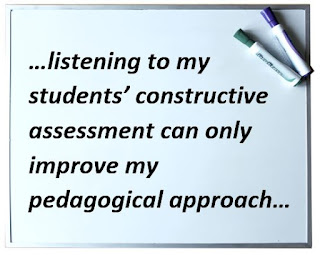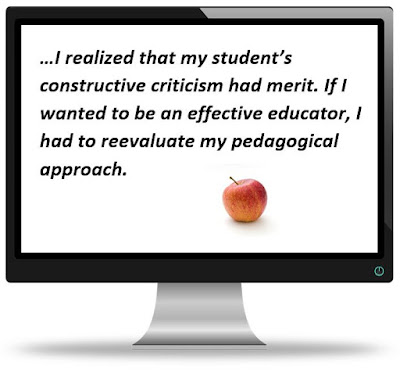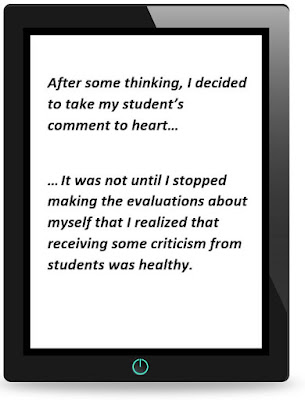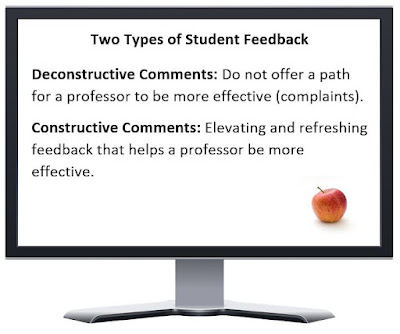The Only Thing to Fear is Fear Itself: How I Overcame My Anxiety About Student Evaluations of Teaching
I had never been speechless and embarrassed in my professional life until that Thursday evening. After class, one of my students said something to me that I never forgot: “Ms. Jean-Francois, I don’t mind reading about technology and all, but who wants to hear the same topic over and over again for three and a half months.” Translation—my class was boring. Yes, at some points, talking about the same thing repeatedly could become repetitive and mundane. His honest statement stung because he said it in front of other students. Some others probably felt the same way, too. With my wounded ego, I tried to defend myself. I told him that we were examining the topic from different angles. My explanation did not work. I went home wounded because I did a lot of leg work to prepare for the semester. I was five years deep teaching in higher education, so I thought I was on top of my game. Who wanted to be called “boring”? After stressing over it for a few days, I realized that my student’s constructive criticism had merit. If I wanted to be an effective educator, I had to reevaluate my pedagogical approach.
Second, I had to learn that students’ evaluations of teaching fell under two different umbrellas: deconstructive and constructive criticism. Let’s keep it real—some student comments can be harsh and downright unpleasant. How does one deal with these comments and not worry about the higher-ups reading them? Understanding the differences between the two was a key factor to me. Deconstructive comments from students’ teaching evaluations are the ones that fell under the “complaining” or “whining” category. For example, students who signed up for in-person classes and complained at the end of the semester that the professor should have run the class as an online course; or, I did not learn anything in the class. These are some deconstructive comments that do not offer a path for a professor to be more effective. They are just complaints.
On the other hand, constructive evaluations from students are elevating and refreshing. Two semesters ago, I assigned a great novel to my students, but I only allowed them a month to read it. At the end of the semester, some students wrote that they did not enjoy the book because they did not have enough time to unpack the novel. They were right. I calculated that a month was enough time to finish reading it. I thought that my reading speed was theirs as well. I was wrong. The following semester, I did not repeat the same mistake again. I did not call it quits. I readjusted my teaching approach. Instead of choosing a challenging novel that would take way too much time to analyze in four weeks, I choose a young adult book that focused on current events and gave them the entire semester to dive deeper into it. The approach worked. Another example was when I was teaching in New York City. My students wanted me to ease up on the assignments. I was assigning them too much to the point that they could not keep up with our class. These comments fall under the constructive criticism. I appreciated them because they gave honest feedback that was only there to enhance my teaching skills.
 |
Yes, students’ feedback can be brutal. However, I realized their unpleasant comments are not reserved solely for me. Every professor has been on the receiving end at some point. I do not have to necessarily change how I teach every time a student expresses discontent with my teaching style. At the same time, listening to my students’ constructive assessment can only improve my pedagogical approach. For this reason, at the end of each semester, I ask for their feedback on how I can serve them better. Then, I go back to the drawing board and do some readjustments.
About the Author
Joan W.
Jean-Francois holds an M.A. in English Literature from Brooklyn College, CUNY, and a B.A. in English Literature with honors from York College, CUNY. She
specializes in Postcolonial Literature and Theory, Francophone Caribbean, and
West African Literature. Joan joined the Volunteer State English department in the
fall of 2021.



